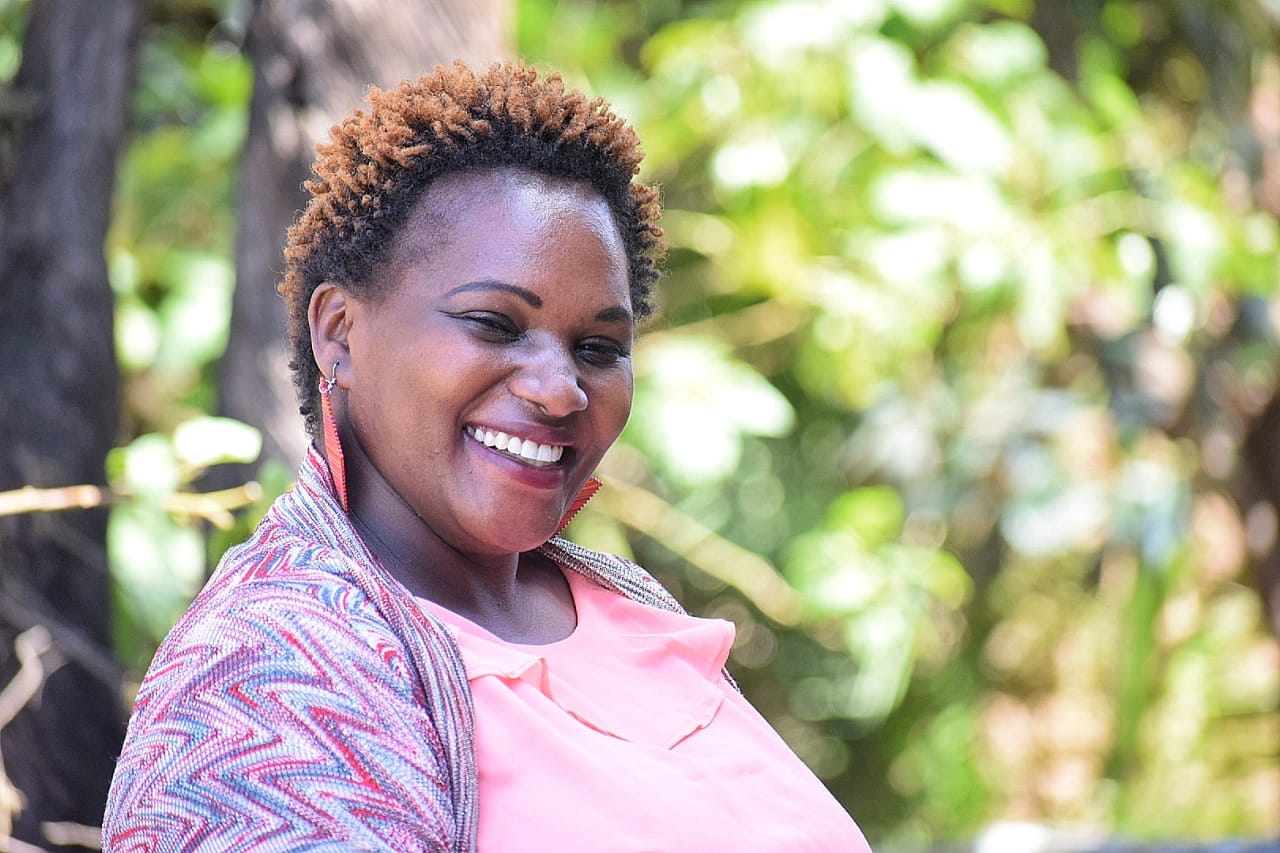
Tell us a little bit about your innovation, the problem that you’re solving and then the solution that you’re offering.
Talking Hands, Listening Eyes advocates for maternal and mental wellness of deaf women with a vision to enable every deaf mother globally the ability to access integrated resources and support and to achieve health, social and financial equity. Our mission is to connect to the hearing world and the deaf world by advocating and promoting the maternal and mental health of any deaf mother globally through innovation and holistic support.
The problem we are trying to solve is that deafness is a silent disability, and most of the time the deaf population is forgotten, even in our day-to-day activities, because very few people know how to communicate with them through sign language.
We focus mostly on healthcare providers, and through that we realised as we walk through deaf mothers’ journeys through postpartum depression, one of the greatest challenges is feeling like they are not able to take care of their children as they should. For example, a mom who is deaf doesn’t know how long her baby has been crying or when the baby started crying. This is a factor that pushes them into postpartum depression, or feeling like they’re not a good enough mom. They often feel like they should be doing something different, but are not able to do it.
During the COVID-19 pandemic, when the country locked down, the deaf community was being left out of so much. We came up with an idea in response to a deaf mom being mistreated by the people around her because they didn’t know how to wake her up when the baby cried. They would throw the stones over her house, and this was affecting the baby, not the mother.
This inspired us to start our innovation through Talking Hands, Listening Eyes. We created a baby monitor that alerts deaf mums when their babies are crying. It has three phases. It is an app, here is a smart band that they put on their hand, and there is a receiver that receives the information and alerts the mom. This product enables them to take better care of their babies.
What’s a recent example of progress or something that you’re currently celebrating?
Talking Hands, Listening Eyes has a prototype! The journey from the idea to a prototype is a great achievement. We are celebrating this because we have tested it as a group. We have also tested it with deaf mothers, and it is working.
I’ve even heard from deaf people who don’t have babies, saying that it is helping them because the device, for example, notifies them of hooting when they are crossing the street. The gadget has also been used as a maternity trigger. So in the hospital when giving birth, the gadget can be used to communicate to deaf mothers. It has a button that when pressed, alerts the mom, getting their attention.
What are some of the primary challenges that you’re currently facing?
My greatest challenge in building Talking Hands, Listening Eyes has been finding the right people to help me in developing this innovation. This is especially because I am not in the tech world. People with the wrong intentions can easily approach me. But I have learnt from my past interactions with such people.
In developing this innovation, what is something that you’ve learned that might help other innovators?
Whenever you think of innovation, get a mentor. I am very proud to say that Villgro Africa has mentored me in life changing ways. Moving forward, whenever I think of innovation, I know what to ask, what to check, the nitty gritties that people most of the time forget, and things that don’t look like they matter, but they do. Mentorship will limit the mistakes made and provide important insights into developing your innovation.
How has Villgro Africa impacted your growth?
I feel like Villgro Africa is that big brother who has already gone ahead of Talking Hands, Listening Eyes. The people who have been guiding us through and have been very patient with us. At some point, I was dropping out because I was feeling like I didn’t belong, but their encouragement and motivation showed me that I did, indeed, belong.